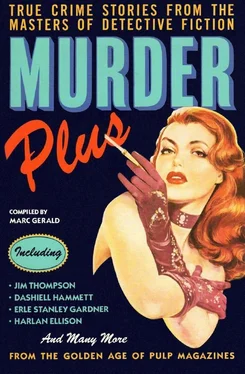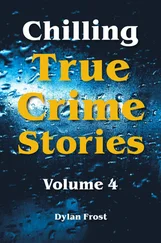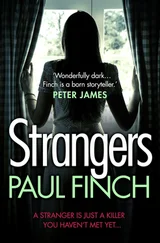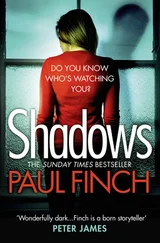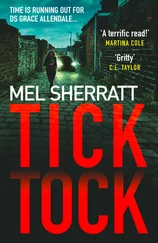Харлан Эллисон - Murder Plus - True Crime Stories From The Masters Of Detective Fiction
Здесь есть возможность читать онлайн «Харлан Эллисон - Murder Plus - True Crime Stories From The Masters Of Detective Fiction» весь текст электронной книги совершенно бесплатно (целиком полную версию без сокращений). В некоторых случаях можно слушать аудио, скачать через торрент в формате fb2 и присутствует краткое содержание. Город: New York, Год выпуска: 1992, ISBN: 1992, Издательство: Pharos Books, Жанр: Детектив, на английском языке. Описание произведения, (предисловие) а так же отзывы посетителей доступны на портале библиотеки ЛибКат.
- Название:Murder Plus: True Crime Stories From The Masters Of Detective Fiction
- Автор:
- Издательство:Pharos Books
- Жанр:
- Год:1992
- Город:New York
- ISBN:978-0-88687-662-3
- Рейтинг книги:4 / 5. Голосов: 1
-
Избранное:Добавить в избранное
- Отзывы:
-
Ваша оценка:
- 80
- 1
- 2
- 3
- 4
- 5
Murder Plus: True Crime Stories From The Masters Of Detective Fiction: краткое содержание, описание и аннотация
Предлагаем к чтению аннотацию, описание, краткое содержание или предисловие (зависит от того, что написал сам автор книги «Murder Plus: True Crime Stories From The Masters Of Detective Fiction»). Если вы не нашли необходимую информацию о книге — напишите в комментариях, мы постараемся отыскать её.
Murder Plus: True Crime Stories From The Masters Of Detective Fiction — читать онлайн бесплатно полную книгу (весь текст) целиком
Ниже представлен текст книги, разбитый по страницам. Система сохранения места последней прочитанной страницы, позволяет с удобством читать онлайн бесплатно книгу «Murder Plus: True Crime Stories From The Masters Of Detective Fiction», без необходимости каждый раз заново искать на чём Вы остановились. Поставьте закладку, и сможете в любой момент перейти на страницу, на которой закончили чтение.
Интервал:
Закладка:
The fact that Grete with her severed head in a basket, could not conveniently serve the eight years, made not the slightest impression on the judge. And lest she might somehow manage the miracle and later go free in her decapitated condition, he concluded, by some weird and unearthly process of logic peculiar to lawyers, that she should have no civil rights!
The only loophole overlooked by this modern Rhadamanthus was when he omitted to order her to report annually to an officer of the court. Maybe he would have done so had he been acquainted with Ichabod Crane.
The proceedings against Merker were dropped for lack of evidence, and when he stepped out of jail he disappeared completely from the pages of history — Gott sci Dank!
Grete’s last days were passed quietly. She showed neither fear nor compunction. Indeed, she was haughty and cheerful; and her courage held up even under the final ghastly preparations for her death.
On the twenty-third of July, 1908, her scheming blond head fell under the executioner’s knife. (The executioner it seems was partial to blondes.)
A strange and baffling case, Markham. In studying its numerous documents, one is forced to doubt practically everything that concerns Grete herself — except, perhaps, the fact that she murdered Pressler — and even here the motive is obscure. Her impulses, her mentality, her feelings for her parents, for Pressler, for Merker — nothing is wholly certain, for she lied to herself as consistently and vividly as she lied to the world.
In fact, it is problematical whether Grete could ever have been convicted without her own voluntary confession. Nobody could have disproved her first versions of Pressler’s death; and her forgery of Pressler’s will was so cleverly done that his own family acknowledged it to be genuine.
Grete was caught and punished only because of that supreme optimism which characterizes all true egoists. She was unable to keep her triumphs to herself. Her “urge to tell” was irresistible. And this “urge to tell” is the basic impulse of all creative art.
Lionel White
Lionel Whitedidn’t just dabble in true crime; he spent the better part of his writing career in pulp purgatory. During the 1940s, he published Underworld Detective, Detective World , and Homicide Detective , magazines whose tawdry, hyperstylized layouts and unusually violent stories make for astonishing reading even today. In the early 1950s, White turned to fiction. He wrote several straight crime novels, the boldest of which, To Find a Killer , is a book of such brutal rage that it would make Mickey Spillane blush. (“My beautiful wife turned to me in her sleep and softly murmured, ‘Harry— Oh Harry.’ It was right then, in that very second, that I made my decision. Me, Marty Ferris. I decided to kill my wife.”) In the mid-1950s, White began writing caper novels which dealt with the meticulous planning and execution of heists — and in the years that followed, this subgenre would become his own private turf. His best books, Death Takes the Bus, Clean Slate (filmed by Stanley Kubrick as The Killing ), and The Big Caper , endure not just because of the ingenuity of the knockovers but because of his ability to bring out his characters’ fears, desires, and fatal flaws. Though his fiction was revered by readers and critics, he never left the world of true crime behind. And he would still crank out an occasional yarn when the mood struck or his creditors knocked. This one, however, appeared back in 1942. It is quintessential White — from the first dark, brooding sentence to the last.
Clue of the Poison Pen
This time he had made the move alone. He couldn’t help but think of this one fact above all the others as he sat there in the small, conventionally furnished apartment at 536 Boulevard in Atlanta, Georgia.
Tall, broad of shoulder and stocky, brown hair already receding and shot with a few gray strands, he was only 26, but already, within these last weeks, Perry M. Williams had aged rapidly. He was a harassed, lonely man — a man who spent his days and nights in a maelstrom of fear and worry.
Across the room from where he sat slumped in a deep upholstered chair, was the dressing table at which Mildred Seymour Williams, his 22-year-old wife, had sat so many mornings during those five years of their marriage. On it were the fragile bottles of perfume, jars of makeup material; the dainty, oddly disjointed French doll which she had loved. And in the polished mirror, where his own image made a shallow reflection in the dim light of the room, he saw nothing but her lovely face as he had seen it so many times in the past. Hers was a slender, oval face with soft brown eyes beneath a curtain of fine auburn hair.
He tried not to think of Mildred. Tried not to think of the past at all. But little things kept coming back like so many shadowed ghosts to haunt him until his tortured mind was a mad kaleidoscopic pattern of the years of their life together.
He had thought this latest move might help, but it really hadn’t at all. And yet he knew he couldn’t have stayed on at the old address where they had last lived together. The house at 640 Mayland Avenue, S.W., from which she had disappeared back on November 21, 1941. Everything in that place had constantly reminded him of her and so he had moved. He hadn’t intended taking her belongings with him at all, but then at the last minute had told the truckman to bring them along. He wanted to see her things, even though he knew to do so was an exquisite torture.
He remembered now how happy they had been when they made the move from the furnished rooms at 1117 Stewart Avenue to the Mayland Avenue apartment. She had loved having her own furniture, their own apartment, their privacy. And now she was gone and he had nothing. Nothing but his memory of her and that was worse than nothing because it was something to remind him constantly of his loss; something to twist and embitter and ravage him.
He was a strong man but was unable to cope with the ruthless disaster which had overtaken him. His friends could give him no help; not even the police could do anything about it.
Worst of all, of course, was the uncertainty, the terror of not knowing where she might be: the agony of mind and heart brought about by the wild and uncontrollable imaginings of a heartsick soul — this was what was wrecking him. She was gone and now he didn’t know where to turn.
Instinctively his eyes went to the telephone and for a passing second it occurred to him to call the police once more. He started to get up but then a second later slumped back helplessly. He knew what the answer would be. It would be what it had been each time he had called these last few weeks. They would know nothing. They could do nothing.
And then, as his eyes slowly closed and his heavy face seemed to relax into a mask of utter futility, the sharp, imperative jangle of the telephone disturbed the dead air of the room. Within brief minutes Perry Williams was to find the answer to his enigma. He was to find the peace of knowledge. But it was to be a peace distilled of tragedy and blood and violence.
High winds and sheets of rain beat with an unrelenting violence across the breadth of the city. Great sign boards keeled beneath the wild fury of the storm, wires were down and the facilities of Atlanta’s sewage system were incapable of coping with the tons of water which flooded the gutters until the streets ran in mad torrents.
It was the middle of March and the entire South was being lashed with the pre-spring gales. Hardest hit was Georgia. Down Atlanta’s Stewart Avenue flowed a veritable river of mud, water and debris. And into the cement basement of the old-fashioned frame dwelling at number 1117, water seeped in a turgid, never-ending flow until it reached, a height of more than six feet.
Читать дальшеИнтервал:
Закладка:
Похожие книги на «Murder Plus: True Crime Stories From The Masters Of Detective Fiction»
Представляем Вашему вниманию похожие книги на «Murder Plus: True Crime Stories From The Masters Of Detective Fiction» списком для выбора. Мы отобрали схожую по названию и смыслу литературу в надежде предоставить читателям больше вариантов отыскать новые, интересные, ещё непрочитанные произведения.
Обсуждение, отзывы о книге «Murder Plus: True Crime Stories From The Masters Of Detective Fiction» и просто собственные мнения читателей. Оставьте ваши комментарии, напишите, что Вы думаете о произведении, его смысле или главных героях. Укажите что конкретно понравилось, а что нет, и почему Вы так считаете.
